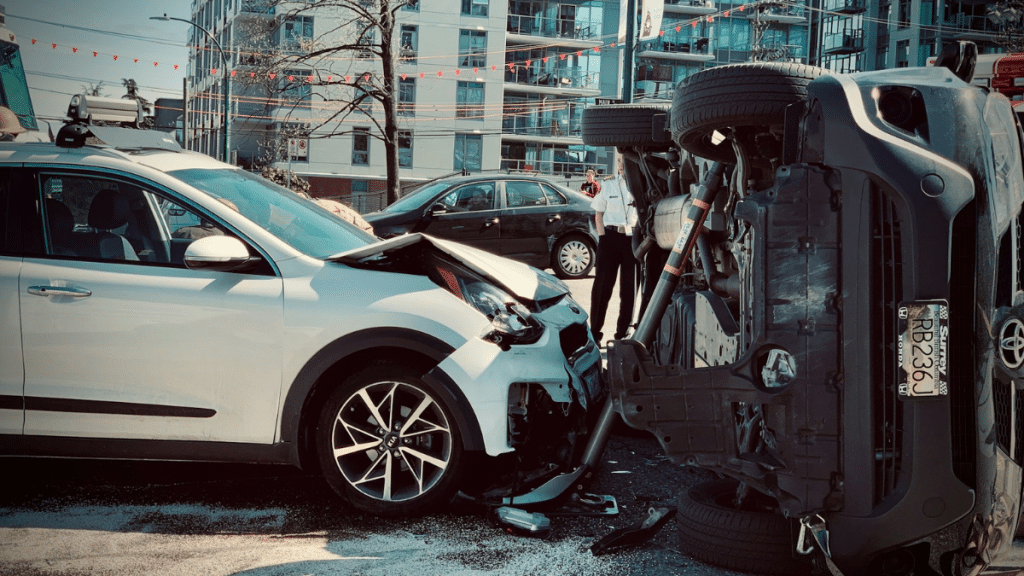To verify your innocence, your insurer will examine all relevant details, including information about the driver and the accident, when you report a non-fault accident. Your insurance price won’t increase immediately if you are in a non-fault collision. Accidents’ frequency and seriousness are usually considered when determining premium rates.
The non-fault claimant promptly notifies the insurer of any potential actions. How you contact them and explain every incident to establish you weren’t at fault will depend on your insurance policy. When your insurance requests the information, you should be truthful with them. You can ask the insurer for a percentage increase in your premium regardless of whether you were in a non-fault collision. This is how non-fault claims impact insurance.
Rise in Insurance Premium Costs
Undoubtedly, your auto accident and non-fault claim will raise your insurance premiums. However, it must have the same impact as filing an at-fault claim. You should anticipate that a new insurer may inquire about your claim history if you choose to switch. After you file a non-fault claim with the insurer, your insurance rate won’t go up immediately, but a few factors could eventually cause it to:
- History of claims: Regardless of whether you have a non-fault claim, you must continue to drive safely and accident-free to retain a constant premium. The insurer may consider you a high-risk driver when determining your rate if you have a history of accident claims. As a result, your premium will go up to cover the expense of your return.
- Claims for injuries: Similarly, medical records may result in higher premium rates if you or any passengers experience any injuries.
- Car damage: Your premium may be indirectly impacted by the need to repair and restore some serious vehicle damage.
Affect the No-Claim Bonus
It may be unjust to forfeit your no-claim bonus when you report a non-fault accident to the insurance company, even if it was not your fault. No claim bonus, after all, is associated with a spotless driving record free of accidents. This suggests that your future premium will go up, and you will no longer receive your no-claim discount.
The impact of a non-fault claim will be reduced. The insurance company’s desire to deduct your no-claim incentive may sometimes determine this. A car accident lawyer in Douglasville, GA can help you navigate the insurance process and potentially dispute the loss of your no-claim bonus.
Increased Excess Payment
When you file a claim, your insurance provider anticipates that you will pay the whole policy excess. After the reimbursement has been processed, you have to claim this back from the at-fault driver’s insurance company.
Instead of filing a claim, consider paying out little damages if you have the money. Get repair quotations in advance to determine whether you’ll probably get a payout from your insurer if you have to pay for repairs and your voluntary excess.
How Do You Know Whether The Accident Was Your Fault?
The law is the primary determinant of whether or not you were at fault for an accident. You are responsible for any accidents you have if you are speeding, using a phone, or engaging in any other illegal activity. The other driver is not to blame in these cases. However, if the other person bears all of the responsibility, your insurance will consider your claim to be non-fault. Identifying the guilty party in certain situations can be challenging, though.
Any evidence they can find will be used by your insurance company and the other driver’s insurer to determine who is at fault. If you are in an accident and think the other motorist is at fault, preserve whatever pictures you take of the incident and take contemporaneous notes.
Police reports, dashcam footage, and witness statements will all be used by your insurance to determine whether or not you were at fault for an accident. Be careful what you say to others in an accident because sometimes a driver’s apology can be interpreted as an admission of fault. Ultimately, your insurance company will decide if the accident was considered non-fault.
Does a No-fault Accident Show Up On Your Driving Record?
Your driving record will show a no-fault accident. For example, let’s say a careless motorist rear-ended your car at a stoplight, and your rear bumper fell off. Under these circumstances, you will have to call your car insurance company.
You can then submit a claim to get paid for the repairs. While you were not liable for the collision, your driving record will show a claim you made and the money you received from your insurer. Usually, an auto insurance claim will show up on your driving record three to five years later. Still, the length could change based on your place of residence and the degree of the collision.
When Does Your Insurer Raise Premiums After a No-Fault Crash?
Through your uninsured motorist policy, your car insurance provider could be liable to pay for injuries and vehicle damage sustained should an uninsured motorist strike your car. Such coverage is intended to guard you against financial losses in an accident involving an at-fault driver lacking sufficient or any coverage.
While you are not at fault, the collision makes it more expensive for your auto insurance company to operate with you. They will probably transfer the additional cost to you by increasing your premiums. If you’re dissatisfied, you may always search for another insurer.
Endnote
While a non-fault collision might not immediately affect your insurance premiums, treat the matter properly and behave as advised. Documenting the accident, alerting your insurance carrier, and, if needed, getting legal counsel will help you safeguard your rights and guarantee a better claims process.
